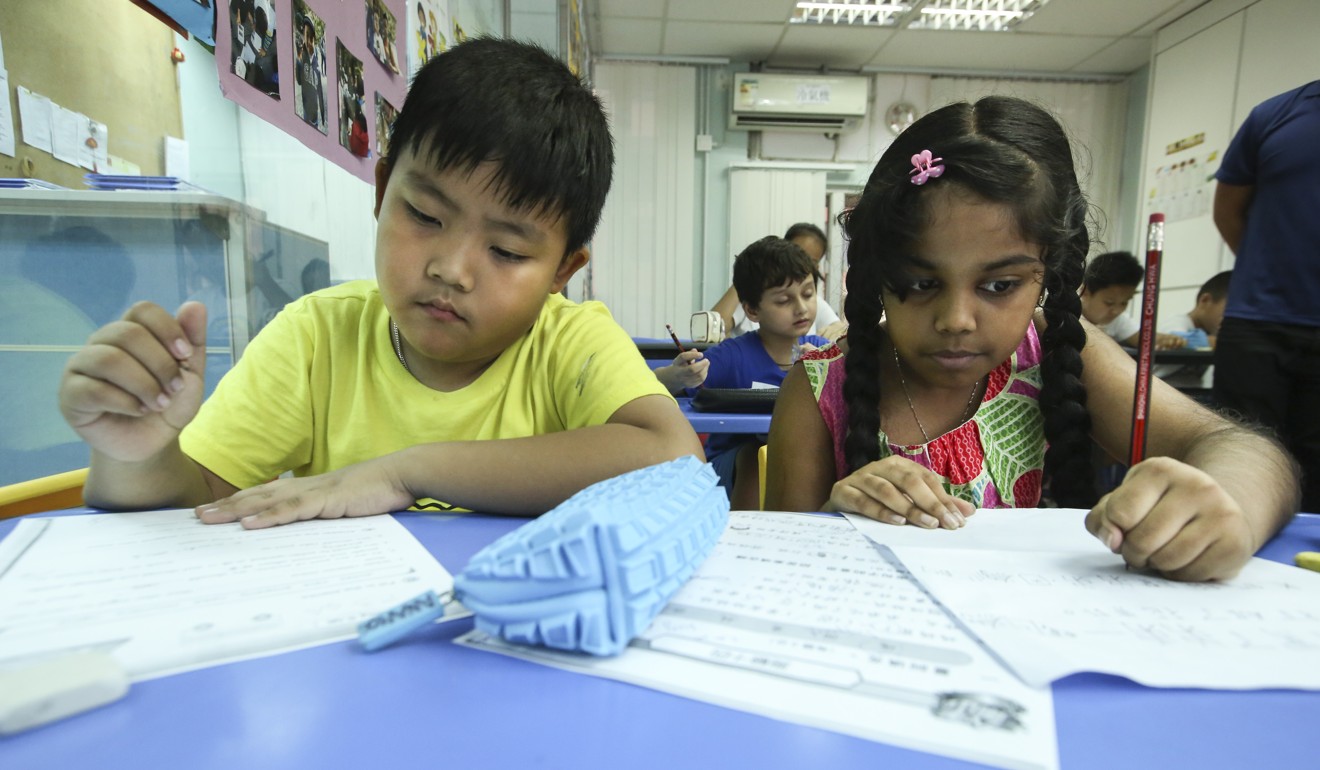
Hong Kong’s ethnic minorities can’t assess preschool quality as reports are not in English, survey reveals
Only one of the 151 official education quality reports available online is in English, even though some 11,600 non-Chinese children attend preschools across the city, says ethnic minorities advocacy group
Non-Chinese speaking parents in Hong Kong have been struggling to choose kindergartens suitable for their children as more than 99 per cent of official education quality reports were not available in English, a recent survey found.

The 151 reports covered all kindergartens offering subsidised or free preschool education in Yau Tsim Mong, Yuen Long and Island East. More than 73,000 non-Chinese residents lived in the three districts according to last year’s by-census. It showed that around 11,600 non-Chinese children were enrolled in preschool education across the city.
Puja Kapai, an associate professor of law at the University of Hong Kong as well as a non-Chinese speaking parent of a three-year-old boy, urged the bureau to make the reports on kindergarten quality available in English as soon as possible.
It’s not only about accountability to the public, but also about accountability to parents in Hong Kong
“It’s not only about accountability to the public, but also about accountability to parents in Hong Kong,” she said.
Kapai described English-language reports as being “very, very important”. She said this was true to ensure not only an equal right to education “but an equal right to quality education”.
However, in response to a question about the matter from lawmaker Fernando Cheung Chiu-hung in March, the bureau explained that most of the reports were in Chinese only because they were written for kindergarten management staff for whom Chinese was commonly used daily. It added that reports had already been uploaded online to boost transparency and public accountability.
Kapai refuted the bureau’s presumption as “ironic”, adding: “Knowing how competitive Hong Kong is, parents are not leaving any stone unturned.”

Kapai found the information in the profiles “selective” and sometimes omitting critical details such as medium of instruction, special support for non-Chinese speaking pupils, and teacher-student ratios.
Minority residents ask Hong Kong leader Carrie Lam to address inequality concerns
However, experiences and comments shared online were “subjective” and there was a dearth of independent and objective indicators vital to understand how kindergartens stacked up.
Kapai said the reports were helpful yet conceded she had no knowledge of them until they were drawn to her attention through Unison’s efforts.
And she said reports made available online would not help those who cannot read Chinese.
To find a trilingual kindergarten for her son, Kapai said she browsed numerous school websites in English, made calls asking about admission requirements, and visited each of the few kindergartens willing to interview her son.
“This is a class problem as much as it is a language problem,” she said. “If I didn’t have those resources, I don’t know where my son would go.”

